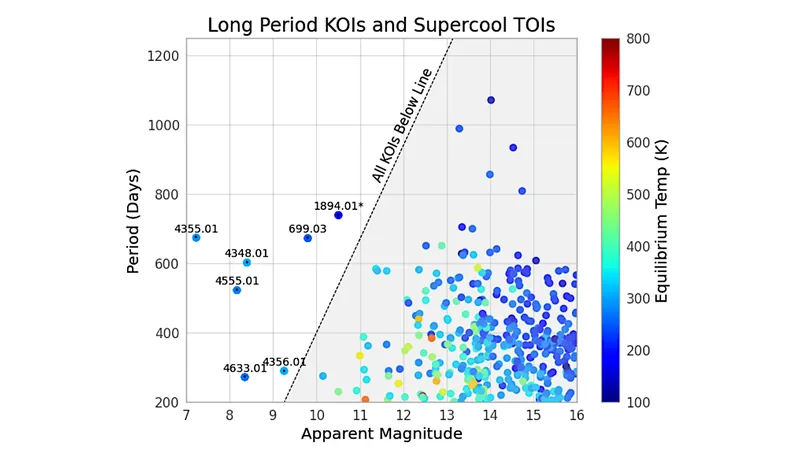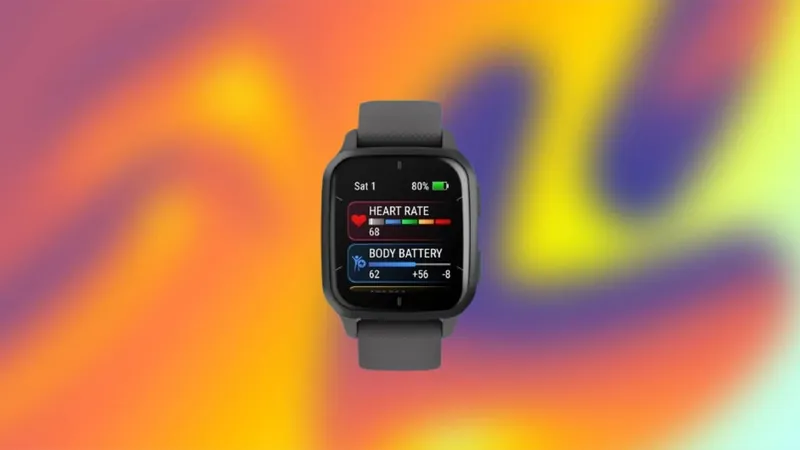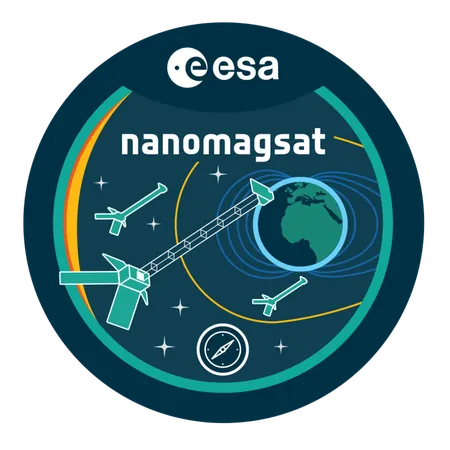
Revealing the Secrets of TESS's Coolest Exoplanet Candidates: New Findings!
2024-11-27
Author: Siti
Introduction
In the intriguing world of exoplanet research, the Transiting Exoplanet Survey Satellite (TESS) has revolutionized our understanding of distant worlds by identifying thousands of potential planets through the transit method. When a planet crosses in front of its host star, it temporarily dims the star's light, providing astronomers with a unique opportunity to measure the planet's orbital period.
TESS and Long-Period Candidates
For the past six years, TESS has become a powerhouse in discovering exoplanets, predominantly focusing on those with shorter orbital periods. However, it has also reported an array of candidates with orbital periods exceeding a remarkable one hundred days. The challenge lies in confirming these longer-period candidates, as data gaps can obscure crucial information about their orbits.
Recent Study Findings
A recent study reveals an exciting twist in the search for these elusive long-period planets. While many candidates initially appeared to possess lengthy orbits, it turns out that most likely have much shorter periods. Yet, amidst these findings, there is a significant number of TESS candidates with confirmed long orbital periods. These candidates typically have only two observed transits, and even those with three or more can be validated by ruling out any potential shorter-period alternatives.
Confirmed Long Orbital Periods
Leveraging TESS data, researchers have confirmed long orbital periods for nine candidate planets and identified five additional candidates that are likely to have extended periods. These planets, due to their long orbital characteristics, are expected to maintain cooler equilibrium temperatures, potentially creating favorable conditions for the existence of exomoons or rings—an enticing prospect for the future of exoplanetary studies.
Ongoing Research Efforts
Moreover, this ongoing research aims to refine the TESS dataset by presenting corrections to various reported orbital periods and examining transit timing variations in three planet candidates. As we continue to explore these cool transiting planets, the potential for discovering unique celestial features and expanding our knowledge of the universe remains vast.
Conclusion
Stay tuned as the journey into the cosmos unfolds, revealing extraordinary revelations about the intriguing exoplanets lurking in the depths of space!




 Brasil (PT)
Brasil (PT)
 Canada (EN)
Canada (EN)
 Chile (ES)
Chile (ES)
 España (ES)
España (ES)
 France (FR)
France (FR)
 Hong Kong (EN)
Hong Kong (EN)
 Italia (IT)
Italia (IT)
 日本 (JA)
日本 (JA)
 Magyarország (HU)
Magyarország (HU)
 Norge (NO)
Norge (NO)
 Polska (PL)
Polska (PL)
 Schweiz (DE)
Schweiz (DE)
 Singapore (EN)
Singapore (EN)
 Sverige (SV)
Sverige (SV)
 Suomi (FI)
Suomi (FI)
 Türkiye (TR)
Türkiye (TR)